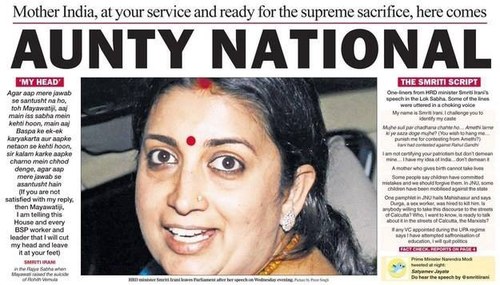
A debate has been raging in both India and Pakistan over media freedom ever since the publication of a story by prominent Pakistani journalist, Cyril Almeida, in this newspaper brought the state’s wrath upon him. Almeida was briefly barred from travelling outside the country after he reported a rift between the civilian and military leaderships.
In his column, he later wrote: “Because nothing of the reaction had been unanticipated, nothing had been left to chance before the story was put out in print.”
The state has now revoked the order to stop him from leaving the country.
Both India and Pakistan are facing conflicts of various natures — and it is the media that plays a role in such circumstances. Many Indian journalists condemned what happened to Almeida, even though their own channels were filtering news from India-held Kashmir.
In India, the media has lately proven to be following an ultra-nationalist line drawn by the Narendra Modi-led Bharatiya Janata Party government where anyone expressing dissent against the government is an enemy of the country. There have been incidents where a popular news anchor accused his panellists of being anti-nationalist and enemies of the country. Every evening, wars are fought between India and Pakistan on technically modified monitors.
Being a journalist who has been reporting on Kashmir for years now, it is sometimes surprising to see well-educated editors also following what is in theory called propaganda model. Everyone wants to blame the other — no one wants to look within.
The coverage of the present uprising in Kashmir by media in India is instructive. Television news channels first wanted to annihilate every Kashmiri who expressed dissent and then go to war with Pakistan. News anchors were flown to Srinagar and hopped on to vehicles of the government forces (embedding themselves) and reported a “neutral story” in which a Kashmiri protester was branded a terrorist and the government forces shooting at civilians lauded as saviours.
After July 8 when Burhan Wani, a popular rebel commander, was killed in a Kashmir village, the population rose up against the state.
More than 90 civilians have been killed by the Indian forces, 14,000 injured, (at least 1,000 received injury in the eye due to lead pellets) and now, in the worst crackdown ever, around 10,000 people have been put in jails.
How did the state manage to pass off all this just as “a law and order problem that was dealt with with utmost restraint”?
Silencing dissent
The jingoistic media came in handy. And what happened to the detractors? They were silenced. A stark example of this silencing process led by the state was the banning of a daily newspaper, Kashmir Reader.
In its ban order, the government said that publication of the newspaper can “easily incite acts of violence and disturb peace and tranquility”.
The order further stated: “It has been observed that the contents published in the above newspaper is of such nature that can easily cause incitement of acts of violence and disturbance of public tranquility in the state of Jammu and Kashmir…Therefore, it has become expedient in the interest of prevention of this anticipated breach of public tranquility to forthwith take necessary precautionary measures.”
In another instance of silencing the truth, the government first stopped a prominent human rights defender, Khurram Parvez, from attending a session of the United Nations Human Rights Council in Geneva, where he was scheduled to speak. The next day, on Sept 15, he was picked up by police from his home, arrested and then sent to jail under the draconian Public Safety Act (PSA).
He is the Chairperson of the Asian Federation Against Involuntary Disappearances and programme coordinator of J-K Coalition of Civil Society. Arresting Parvez did have an impact on the situation in Kashmir as it seemed to be a warning to other activists. Similarly, the ban on the newspaper and beating up journalists across Kashmir were meant to send a message to the media fraternity.
The Committee to Protect Journalists said that the authorities in Jammu and Kashmir should immediately reverse an order to suspend publication of the Kashmir Reader newspaper. “Censoring the press will not put an end to the unrest in Jammu and Kashmir,” CPJ Asia Programme Coordinator Steven Butler said in a statement from Washington. “The Kashmir Reader should be allowed to resume publication without delay.”
I have had a first-hand experience of how you could be treated in India-held Kashmir. On Aug 14, the paramilitary forces beat me up, and a local friend of mine, in Islamabad district. Even though I had showed my press identity, that only made them increase the beating. Abuses and baton strokes continued till they decided to leave us. We intended to cover a rally, but were not allowed to do so.
It is not the first time that journalists in Kashmir, especially the local ones, have been treated like this and it may not be the last. Amid this suppression of truth by the state, the news channels based in metropolitan cities of India only add fuel to the fire and consciously choose to ignore many Cyril Almeidas of Kashmir.
Fahad Shah is an independent journalist, who is also the founding editor of The Kashmir Wallamagazine.
Twitter:@pzfahad
Published in Dawn October 20th, 2016


































